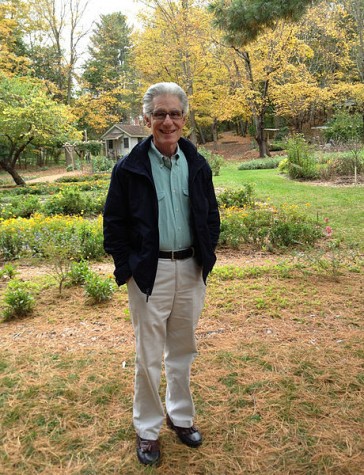The Many Lives that Define Who We Are
Before I begin, allow me to say that it is completely up to you to believe what I will be presenting in this article. The information that I have gathered for this article on death may be entirely different from what your own religion or beliefs may say. If you are comfortable with mulling over the afterlife and death, and if you are comfortable with discussing the conflicting ideas of this highly spiritual process, I suggest that you take this extraordinary discovery, observed by two of the most prestigious scientists, into consideration.

Death is defined as the end of the life of a person or organism. Those who die are unable to undergo bodily functions that define the characteristics of life. Within two to six hours after death, a body begins the process of rigor mortis, which eventually leads to putrefaction and decomposition. A living entity, however, is not simply defined by its physiological makeup. There is another part of us that defines our identity. That part is our “soul,” or perhaps our conscious, subconscious, and superconscious mind. Now, modern science and pragmatic reasoning dictates consciousness and emotion as a brain process; nothing more than a set of chemical reactions resulting from external stimuli. Dualism, the idea that a person combines a body and a non-material mind, is generally disapproved by the scientific community.
Psychiatrists Brian Weiss (1944- ) and Ian Stevenson (1918-2007) were both among the overwhelming majority of scientists who believed that life and death were purely biological processes. Their beliefs, however, were greatly altered when they discovered and observed extraordinary but disturbing characteristics in their patients that could not be explained by the environment or heredity. After many years of meticulous research and investigations of several thousand patients, Weiss and Stevenson found undeniable evidence that strongly suggests the existence of reincarnation and life after death. These include xenoglossy, or the ability to speak a language without having ever learned it, recollection of past lives, birth marks and defects, “crisis apparitions,” a phenomenon in which a person sees a lifelike ghost of a friend or relative around the time that loved one dies or gets involved in an accident, after-death communications, deathbed visions, and future life progressions. Both of these scientists have published many renowned books and reports of their findings, and one such piece is Weiss’ Many Lives, Many Masters. Listed as a number one best seller on Amazon, this novel is a compilation of recordings and insights that Weiss documented during sessions with a patient who suffered from severe phobias and panic attacks. It is in this novel that we get a glimpse of what lays behind the shrouds of controversy and mystery that cocoons the truth of life and death.
Weiss’ discoveries suggest that human consciousness, or the soul, is an eternal manifestation of an individual’s knowledge, experience and spirit that temporarily comes to the physical world as a living entity. Dr. Weiss learns that we occupy a terrestrial life form to acquire the morals, lessons, experiences and knowledge of what Life has to offer. Thus, he suggests that we are reincarnated numerous numbers of time, and that souls who share intimate relationships with other souls, such as friends, family members, and relatives, are often reincarnated together.

During sessions of hypnotherapy with Catherine, the patient described in Weiss’ novel, Weiss documents recordings of Catherine’s monologues and recollections of her past lives. It is here that Dr. Weiss witnesses astoundingly detailed facts and recollections of true events, cultures, geographies and centuries of Catherine’s previous lifetimes, and Catherine claims that Weiss had appeared in some of her lives. One by one, Catherine’s subconscious and superconscious state of mind begins to unveil the events of her life, afterlife, and even Weiss’s life. In one such session, Catherine takes on a different personality and stuns Dr. Weiss when she talks about details of his own father and son. During this session, Catherine’s superconscious mind was able to correctly state Weiss’s father’s Hebrew name, Avrom, and the cause of his death, a massive heart attack. Regarding Weiss’s son, Catherine tells him that the first-born died of a fatal heart ailment.
Throughout the many sessions that follow, Catherine continues to astonish Weiss with her words of recollection and wisdom. As she begins to recall instances of her many deaths, Catherine and Weiss notice that her phobias and panic attacks were fading away progressively. And just like that, Catherine was able to cure her anxiety. Weiss’ experience with Catherine ignited the start of his own research in parapsychology, and he is now a renowned pioneer in this field and has appeared in numerous papers and talks.
Of course, Weiss’ experience with Catherine is nowhere close to being the absolute proof of reincarnation, let alone life beyond death. His novel, however, is one of countless other reports and books that show similar observations, proofs and experience of reincarnation. Dr. Michael Newton is another brilliant scientist who has compiled his own research and discoveries in his books Journey of Souls and Destiny of Souls. Stevenson alone has published reports of over 3000 cases of children, particularly in Asia, that are suggestive of reincarnation.
Ultimately, though, there are countless other religions and theories that explain death in their own unique ways. No matter what anyone says, your take on death, my take on death, and everyone else’s take on death will be subjective for as long as we live. This article was purely meant to suggest another concept, another thought on death; your interpretation of death is for you to decide.





